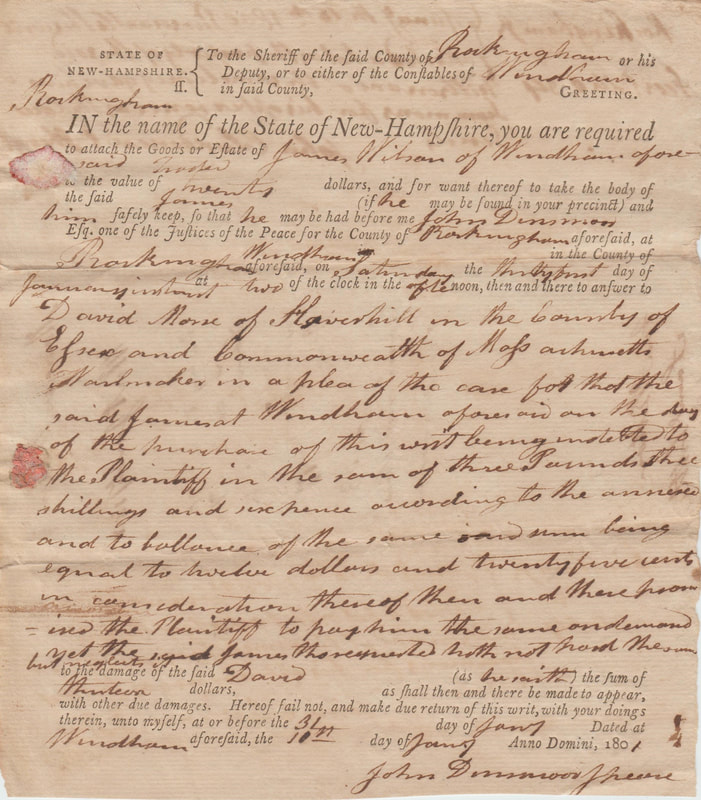|
On January 10, 1801, John Dinsmoor, as the justice of the peace, signed a warrant to arrest James Wilson. According to the warrant, if James was found within the precinct, he was to be arrested and held so that he could make an appearance before Dinsmoor on Saturday, January 31 at two o'clock. Windham's constable, who may have served the warrant and attempted to arrest Wilson, was Abner Campbell. Like many of Windham's constables in that era, he was the town's only constable and served for just one year. In addition to arresting Wilson, who lived in the Burnham house at the Windham town center, his personal estate was to be attached for the sum of $20. When Wilson appeared before Dinsmoor that January afternoon he would have been confronted by David Morse, of Haverhill, a nail maker. Some time prior, Wilson had purchased "three pounds three shillings and six pence" of goods, presumably nails, from Morse, and failed to pay him. In 1801, the sum of British currency was equivalent to $12.25 according to the warrant; that amount is rounded up to $13 and somehow raised to $20 against Wilson's estate. While the outcome of the case is unknown, Wilson did not stay around Windham for long. During the War of 1812, Wilson found himself a seaman who had earned the moniker "Sailor James." While in England a "press-gang" found Wilson on the street and impressed him into the British service. However, Wilson was a fervent patriot and refused to fight against his countrymen. For his refusal to fight with the British ranks Wilson was imprisoned at Dartmoor Prison, but eventually released. Following his release from prison Wilson returned to Windham and married Mary Gregg. After living in Windham for a year, Wilson deserted his wife, went to Baltimore, and was never heard from again.
0 Comments
Leave a Reply. |
AuthorDerek Saffie is an avid Windham historian who enjoys researching and sharing his collection with all those interested in the history of the New England town. Archives
November 2019
Categories
All
|
